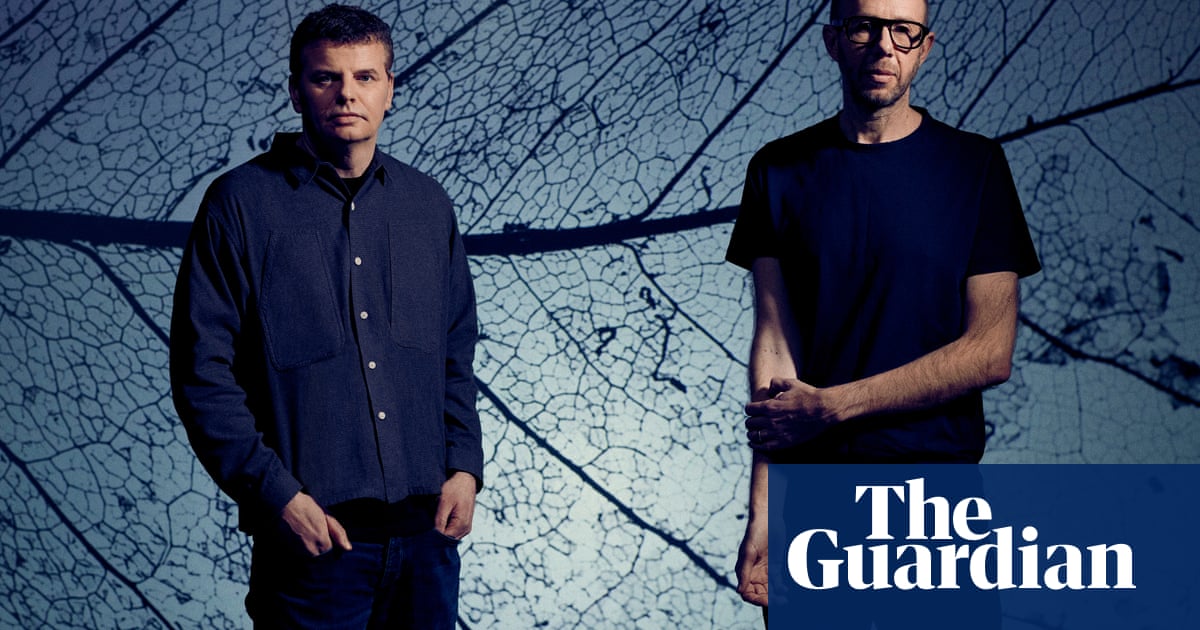
s a person of colour growing up in South Africa in the 1970s, double bass player Leon Bosch was scarred physically and mentally by the country’s apartheid regime. “They abused me, imprisoned me, ill-treated me, and I didn’t want to have any contact with them,” he says. He sought refuge in the UK in the early 80s, and built a successful career here. Now, though, he has made his peace with South Africa, and his latest disc underlines that spirit of reconciliation.
Working with Nigerian-Romanian pianist Rebeca Omordia, Bosch has recorded a set of pieces for bass and piano that he commissioned from South African composers in a one-man attempt to create a bass repertoire in the country of his birth. “The idea of the project is not just to record the music,” he explains, “but to commission as much music as possible by good South African composers so that future generations will have music to play.” Over the past four years he has commissioned almost 40 pieces, and nine of them have made it on to the new disc: “The pieces,” he says, “that spoke most loudly to me.”
Bosch was born in a township near Cape Town in 1961. The apartheid system classified him as “Cape coloured”, and he says township life was impoverished, dehumanising and dangerous. Both his parents were teachers, but his father was banned for political activism and had to work as a labourer for the local council instead. “Our house was raided regularly by Special Branch,” he says. “We lived a life of terror.”
Despite the turmoil, his parents ensured he received an excellent all-round education, which included music, with lessons starting at the age of five. “My father’s generation all did this for their kids,” says Bosch. “He bought an upright piano, a hi-fi and the contents of a record library that was going out of business.” Evenings were devoted to listening to symphonies.
Bosch was himself politically active at school, and in 1976 he helped to organise a march intending to go to the parliament building in Cape Town. The police attacked the protesters and mayhem ensued. Bosch escaped but soon after was picked up by the police and identified as one of the ringleaders. Along with nine other activists, he was beaten, tortured, subjected to psychological attacks – the police made threats against other members of his family – and detained for a month. He was later tried for sedition but acquitted.
“Everyone was left scarred by the experience,” he says. “Everything about me is shaped by it. The workaholic thing. I realise now, looking back, that when you’ve been through this level of trauma, working insanely hard is the only way to neutralise the pain.” He later underwent therapy to come to terms with the way he had been treated.
Bosch applied to study law at the University of Cape Town, but was rejected because of his history of activism, so applied almost as a joke to study music instead. He was accepted and started studying cello, switching to the bass in his second year at the suggestion of one of his teachers. “I had a lot of catching up to do,” he says. “All the kids that came to study music had had specialist educations and had been to wonderful schools. I realised I had a choice: I could give up or I could fight. I decided to fight, and I started practising for eight hours a day. They sniggered at me when I first started playing in performance classes, but they weren’t sniggering two years later.”
He left South Africa in 1982 and, with financial support from music aficionados in Cape Town, came to the UK to study at the Royal Northern College of Music in Manchester. He was soon building a career in the UK, fought off the Home Office’s attempts to deport him in 1985 as an illegal immigrant, and rose to be principal double bass of the Academy of St Martin in the Fields, a position he held for almost 20 years.
Bosch, who is 59, retired from the orchestra in 2014. “I realised one could become institutionalised,” he says. “The Academy was a great orchestra, but I thought I needed to step away to find out what would happen without me being attached to an organisation. Could I have a musical identity or a personal identity?” The answer, judging by his solo work, recordings, conducting with his own ensemble I Musicanti and teaching, seems to be yes.
He says being a black classical musician in the UK has never been easy. “I met hostility and racism. I was told to go back where I came from and was racially abused by the police in Yorkshire when I was attending a music festival. People called me ‘the little boy from the colonies’, and I remember one agency that was only willing to market me as ‘the black bassist’. That was anathema to me.”
Bosch welcomes the work of Chineke!, the UK-based orchestra made up primarily of BAME musicians, but says the fact it is necessary is an “indictment” of the lack of diversity in British classical music and the persistent racism within society. He admires what the Kanneh-Mason family have achieved, but wonders whether they will be allowed to build durable careers. “There have always been young people of colour who were brilliant musicians,” he says, “but there is also always a danger they will be dumped further down the line. What I wish for the Kanneh-Mason family is that they have careers that last decades, and not just for as long as they are in the limelight.”
• The South African Double Bass is released by Meridian Records.
• This article was amended on 13 October 2020 to make clear that Bosch studied at the University of Cape Town.











